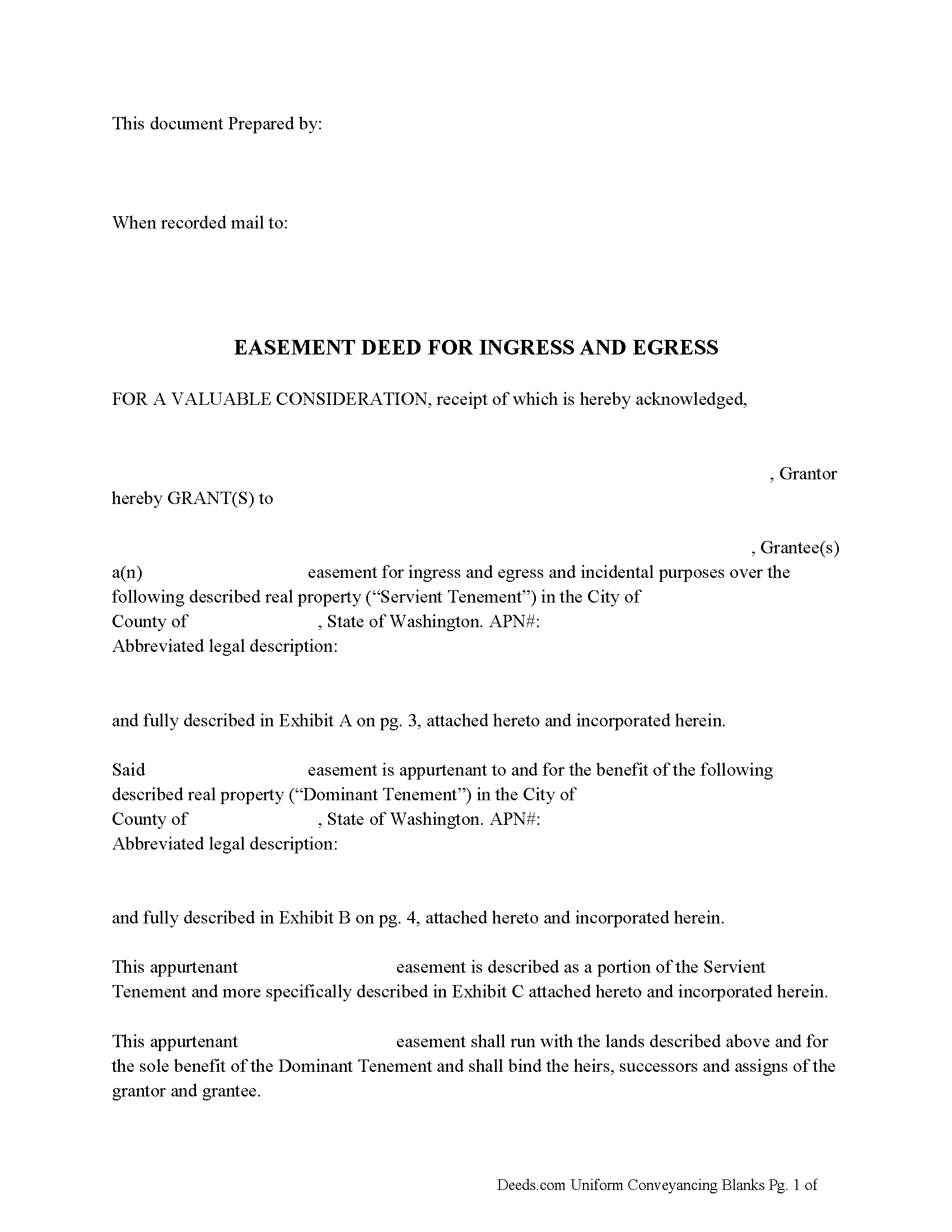Download Washington Easement Deed Legal Forms

Washington Easement Deed Overview

Easements are created to allow one person to use another's real property for a specific purpose. An easement in this state can be established by a deed in writing, by implication, or by prescription. Easements established by dedication are property rights that cannot be extinguished or altered without the approval of the easement owner, unless the plat or other document creating the dedicated easement provides for an alternative method to extinguish or alter the easement (RCW 64.04.175). Solar easements for assuring continued access to direct sunlight for solar energy systems can be created in this state and privately negotiated (RCW 64.04.140). A solar easement can only be created by written agreement, but is not authorized to be created by an implied or prescriptive easement (RCW 64.04.160). An easement deed in Washington should specify the terms, duration, and location of the easement.
To entitle an easement deed to be recorded in this state, it must be signed and acknowledged by the grantor. An easement deed can be acknowledged in this state before a justice or clerk of the Supreme Court, a judge or clerk of the court of appeals, a judge of the superior court or a qualified court commissioner thereof, a county auditor, or a notary public (RCW 64.08.010). Acknowledgments taken out of state can be taken before any person authorized to take acknowledgments of deeds by the laws of such state. Unless out-of-state acknowledgments are taken before the officers listed in RCW 64.08.010, the deed must be accompanied by a certificate of acknowledgment. Officers taking acknowledgments of an easement deed within this state should have a certificate of acknowledgment attached to the instrument (RCW 64.08.050).
A duly acknowledged and certified easement deed can be recorded in the office of the county auditor in the county where the property subject to the easement is located. An unrecorded easement deed will be valid between the parties bound by it but will not be valid as against a subsequent purchaser in good faith and for a valuable consideration from the same vendor of the same real property, or portion thereof, whose conveyance is first duly recorded. The document will be considered recorded the moment it is filed for record (RCW 65.08.070).
(Washington ED Package includes form, guidelines, and completed example) For use in Washington only.